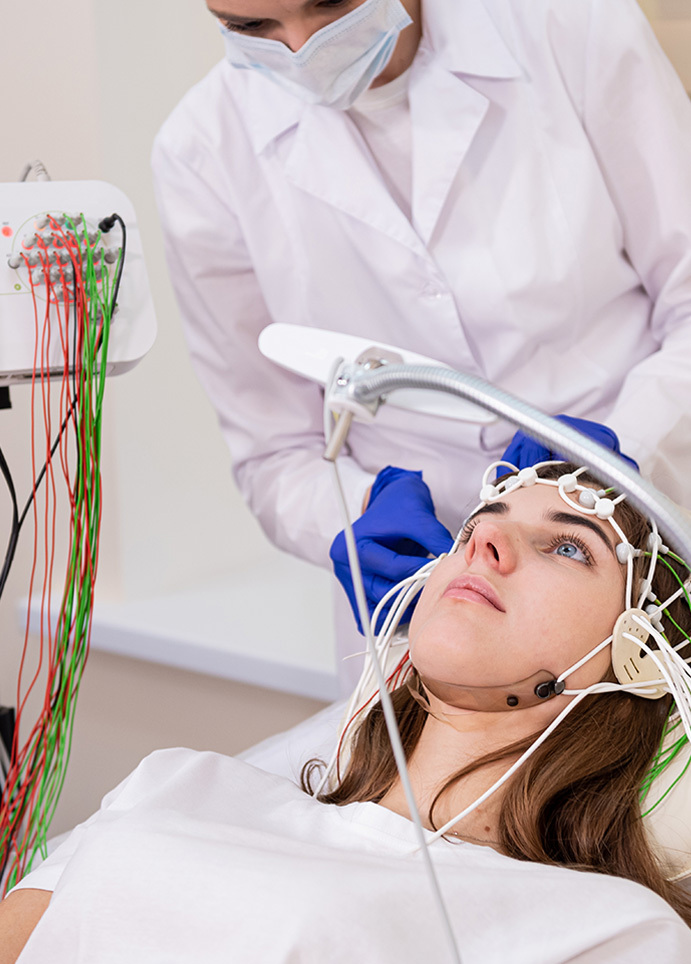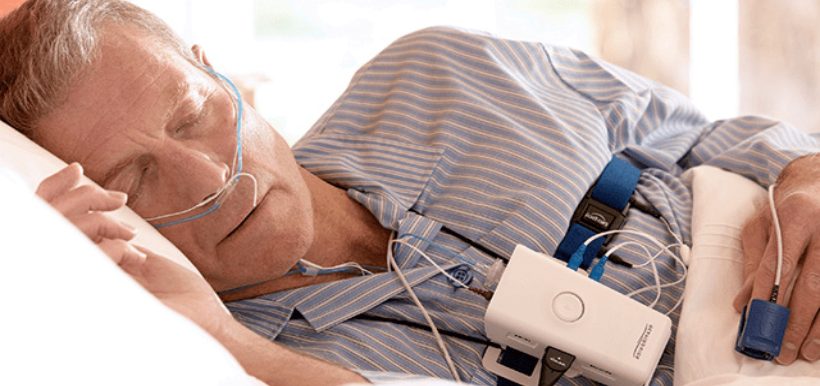Explore the Benefits of Sleep Study Bangalore for a Healthier Lifestyle
All You Need to Learn About Rest Researches and Their Duty in Identifying Rest Disorders
Sleep research studies, or polysomnography, are crucial tools in understanding and detecting different rest disorders. By keeping an eye on physical signals like mind task and heart rate, these examinations give important understandings right into an individual's sleep patterns. The results can reveal problems such as sleep problems and sleep apnea, causing targeted therapy strategies. Numerous stay unaware of the different types of sleep researches and their details procedures. What specifically can one expect throughout a rest study?
What Are Sleep Researches?
Rest studies, additionally called polysomnography, are diagnostic tests used to examine and observe rest patterns and problems. These tests normally happen in a controlled setting, such as a rest center, where people are kept track of overnight. Throughout the research, various physiological signals are videotaped, including brain waves, heart price, oxygen degrees, and muscular tissue task (Sleep Study Bangalore). This extensive data collection enables healthcare experts to determine sleep-related issues, such as rest apnea, insomnia, and restless leg syndrome. The assessment process not just analyzes the amount of sleep but also its top quality, assisting to identify abnormalities. Rest researches are essential for creating appropriate therapy plans, as they provide understandings into the underlying root causes of rest disturbances. By understanding a person's one-of-a-kind sleep design, doctor can suggest way of living adjustments, medication, or extra interventions to enhance general rest health and health
Kinds Of Sleep Researches
While numerous kinds of sleep research studies exist, they are largely classified based on the particular problems being analyzed and the techniques employed. One typical kind is polysomnography (PSG), which records mind waves, oxygen levels, heart price, and breathing during sleep. This detailed evaluation is especially helpful for diagnosing rest apnea, sleeping disorders, and other rest disorders.
An additional kind is home sleep apnea screening (HSAT), which offers a simplified version of PSG for people presumed of having sleep apnea. This technique allows for keeping an eye on in a familiar atmosphere, improving convenience and benefit.
Actigraphy is an additional method, utilizing a wrist-worn device to track activity patterns, thus supplying insights right into sleep-wake cycles. Several sleep latency examinations (MSLT) review daytime sleepiness and assistance detect narcolepsy by gauging exactly how swiftly a specific falls asleep during the day. Each type of rest research study serves an unique function in recognizing sleep health and wellness.

Just How Rest Researches Are Conducted
Sleep studies are carried out through various techniques, each created to analyze specific elements of rest habits and physiology. Throughout these research studies, keeping an eye on tools tracks brain activity, heart price, and breathing patterns to collect comprehensive data. This information is necessary for identifying sleep conditions and determining reliable therapy choices.
Sorts Of Rest Researches

Keeping an eye on During Sleep

Usual Sleep Disorders Identified
Generally experienced in medical settings, rest problems encompass a variety of conditions that significantly affect a person's lifestyle. Amongst one of the most widespread are sleeping disorders, characterized by difficulty dropping or staying asleep; rest apnea, which entails duplicated disruptions in breathing throughout sleep; and uneasy legs disorder, noted by an alluring impulse to move the legs. Narcolepsy is one more substantial disorder, leading to too much daytime sleepiness and unexpected sleep attacks - Sleep Study Bangalore. Furthermore, parasomnias, such as sleepwalking or night terrors, disrupt sleep with abnormal habits. These disorders can have extensive results, including damaged cognitive function, state of mind disruptions, and raised danger of chronic wellness issues. Precise medical diagnosis of these problems commonly counts on comprehensive sleep researches, which help recognize details conditions and overview reliable therapy strategies. Recognizing the nature and signs of these typical sleep conditions is crucial for improving patient end results and improving overall wellness
Comprehending the Outcomes of Sleep Researches
While analyzing the results of sleep studies might seem daunting, a clear understanding of the information can significantly aid in identifying rest disorders. Rest studies, or polysomnographies, offer substantial understandings into an individual's sleep patterns, including brain activity, eye movement, heart rate, and oxygen levels. Each of these aspects can disclose necessary info regarding sleep top quality and disturbances.
Secret metrics include the Apnea-Hypopnea Index (AHI), which shows the severity of rest apnea, and rest stages, which assist evaluate the quantity of restorative sleep. Patterns of fragmented rest or prolonged wakefulness may signal various other conditions, such as sleeplessness or restless leg disorder.
Furthermore, hypnograms visually stand for sleep cycles, allowing specialists to determine certain issues. By assessing these outcomes, health care professionals can formulate a much more accurate diagnosis, bring about targeted treatments for boosted sleep health and wellness and total health. Understanding these results is vital for efficient management of sleep-related conditions.
Therapy Alternatives Following a Sleep Study
After interpreting the outcomes of a rest research study, clients and medical care providers can explore numerous treatment options tailored to particular rest problems. For conditions like obstructive rest apnea, continuous positive airway pressure (CPAP) treatment is frequently recommended to keep air passages open throughout rest. In instances of sleeplessness, cognitive behavior modification for insomnia (CBT-I) offers reliable methods to enhance rest patterns. Medications may likewise be suggested on a short-term basis but are generally not a first-line therapy. For troubled legs syndrome, way of living alterations, iron supplements, or dopaminergic medicines might be suggested. Those identified with narcolepsy could benefit from stimulant medications to take care of too much daytime sleepiness. In addition, attending to underlying wellness issues, such as weight problems or anxiety, can considerably improve rest quality. On the whole, therapy plans are embellished, thinking about the individual's certain diagnosis and individual health conditions to maximize outcomes.
Tips for Planning For a Sleep Research study
Getting ready for a rest study can considerably boost the accuracy of the outcomes, as individuals who follow certain standards view publisher site are most likely to have a successful experience. To ensure suitable conditions for the research, individuals should maintain their regular rest schedule in the days leading up to the visit. It is a good idea to avoid high levels of caffeine and alcohol 24 hours before the research, as these substances can disrupt sleep patterns.
People need to also consult their health care supplier regarding medicines, as some might require to be readjusted or held back prior to the study. additional info Furthermore, using comfy, baggy clothing can help advertise leisure throughout the evening. Bringing individual things such as a favored cushion or blanket may additionally contribute to a much more relaxing setting. Getting here at the facility on time allows for necessary preparations and minimizes any stress and anxiety connected with the research. Following these pointers can bring about more significant and precise outcomes.
Regularly Asked Inquiries
Are Rest Research Studies Covered by Insurance?
Sleep research studies are typically covered by insurance coverage, but coverage differs by strategy and specific situations. Clients must consult their insurance service provider to verify specific advantages and possible out-of-pocket expenses related to the rest research study.
Can I Take Medications Before a Sleep Research?

Individuals are usually advised to avoid taking drugs prior to a sleep research, as particular compounds may conflict with the results. Consulting a doctor for particular standards tailored to one's circumstance is recommended.
How Do I Select a Sleep Facility?
To select a sleep facility, one should think about aspects such as accreditation, offered technology, team certifications, person evaluations, area, and whether the facility provides comprehensive solutions tailored to details sleep conditions.
What Should I Put on Throughout a Rest Research study?
For a sleep study, comfortable, loose-fitting sleepwear is recommended. It needs to allow simple motion and not restrict sensing units. Stay clear of hefty textiles and complicated clothes to ensure a relaxed rest experience throughout the evaluation.
For how long Does It Require To Receive Outcomes?
Results from a sleep study typically take one to two weeks to be refined and assessed by professionals. People should expect to get an in-depth record outlining findings and prospective suggestions shortly after that.
Sleep researches, also known as polysomnography, are diagnostic examinations used to examine and observe rest patterns and problems. Sleep studies are necessary for creating proper treatment strategies, as they give understandings right into the underlying reasons of rest disturbances. Exactly how are rest researches performed to ensure precise tracking of rest patterns? While interpreting the outcomes of rest researches might seem challenging, a clear understanding of the data can substantially aid in detecting sleep conditions. Trick metrics include the Apnea-Hypopnea Index (AHI), which shows the seriousness of sleep apnea, and rest phases, which help analyze the amount of restorative rest.